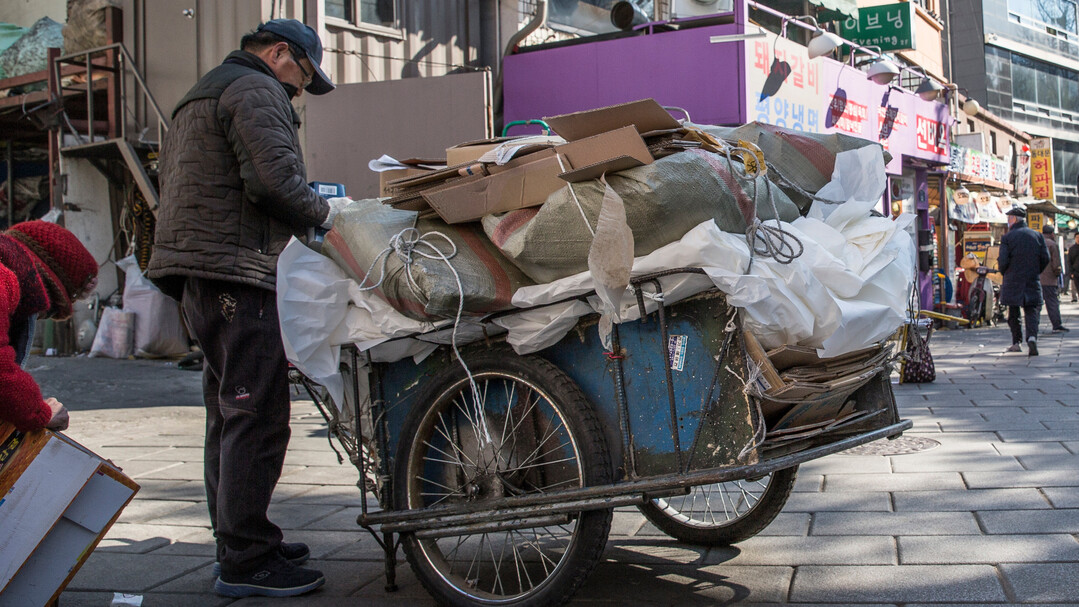
SEOUL – Kim Young-soon, a 70-something office cleaner, embodies the harsh reality of South Korea's escalating elderly poverty crisis. Struggling with dwindling disposable income and rising living costs, Kim's plight highlights the urgent need for systemic change as the nation rapidly ages.
"My employer won't raise my salary, citing the high vacancy rate in office buildings due to the sluggish economy," Kim explained. Burdened by high interest rates on loans taken to secure housing, she added, "I'm worse off than my friends who live with their spouses and have two incomes."
Kim's situation reflects the alarming trend of increasing elderly poverty in South Korea, particularly after it became a super-aged society in 2024, with those aged 65 and over comprising 20% of the population. The pace of aging is accelerating, raising concerns about the future.
Official statistics reveal a grim picture. The relative poverty rate for older adults reached 38.2% in 2023, the second consecutive year of increase. This figure dwarfs the overall poverty rate of 14.9% and the 9.8% rate for the working-age population. The disparity is even starker for women, with a poverty rate of 43.2% compared to 31.8% for men, a reflection of the larger number of older women.
Experts warn that the problem will only worsen. "Poverty-related issues will increasingly haunt Korea," warns Hanyang University economics professor Ha Joon-kyung. He points out the rapid pace of aging, with the elderly population projected to reach 25.3% by 2030 and a staggering 40.1% by 2050. "A fast-aging society may weaken Korea’s international competence on productivity unless corresponding measures are taken."
An OECD report paints an even bleaker picture, revealing that South Korea has the highest elderly poverty rate among member states, nearly triple the OECD average. The country also faces significant income inequality among its older population, further exacerbating the crisis.
Seoul National University economics professor Lee Chul-hee emphasizes the importance of creating a supportive work environment for older adults, enabling them to continue contributing and earning adequate income. He notes the increasing number of older individuals forced to work in jobs that don't utilize their skills or experience.
A recent report by the Korea Development Institute highlights the widening gap between ideal and actual jobs for older workers, particularly those over 50. Chung-Ang University economics professor Ma Kang-rae stresses the need to combat ageism in hiring practices.
The issue is particularly acute in rural areas, where the elderly poverty rate is significantly higher than in urban centers. Activists are calling for targeted job-matching programs to address the specific needs of older adults in these communities.
As South Korea continues to age at an unprecedented rate, addressing the burgeoning elderly poverty crisis is paramount to ensuring the nation's economic and social well-being. Without swift and decisive action, the future for many older Koreans like Kim Young-soon looks increasingly precarious.
[Copyright (c) Global Economic Times. All Rights Reserved.]






























